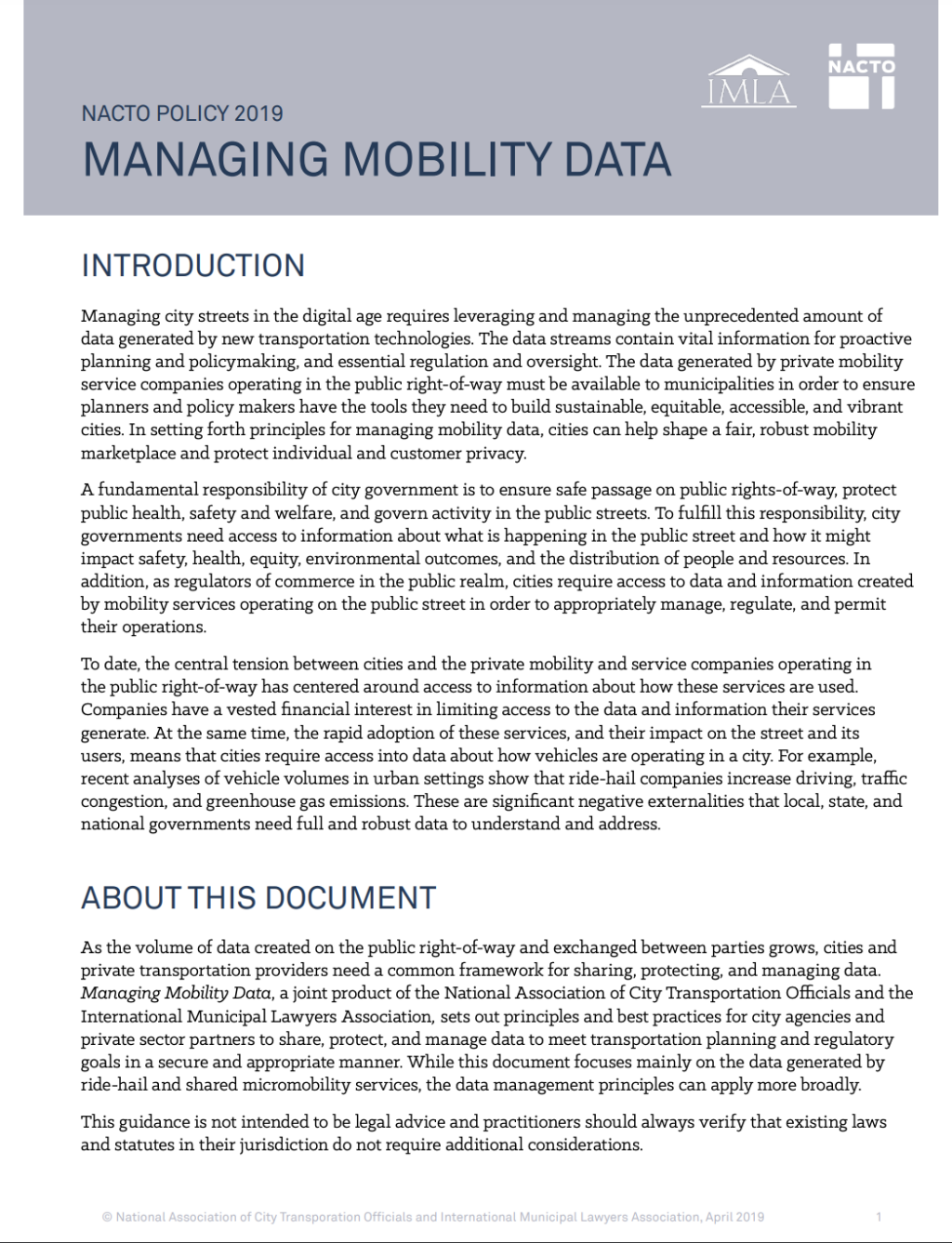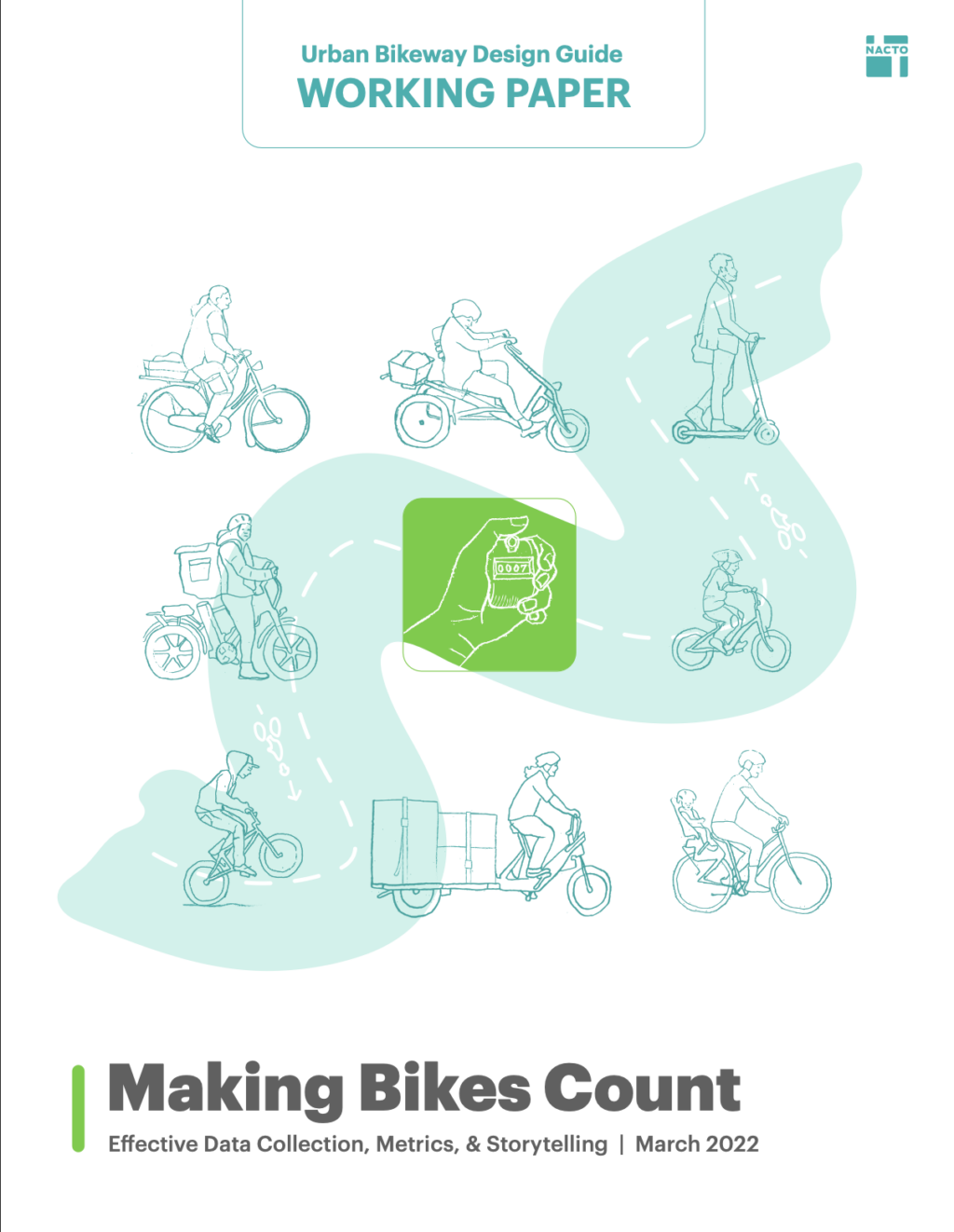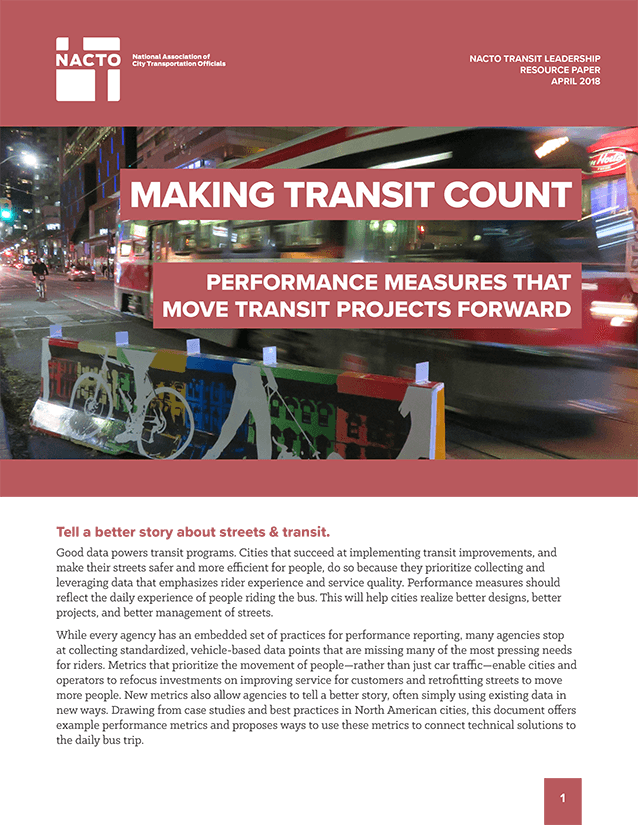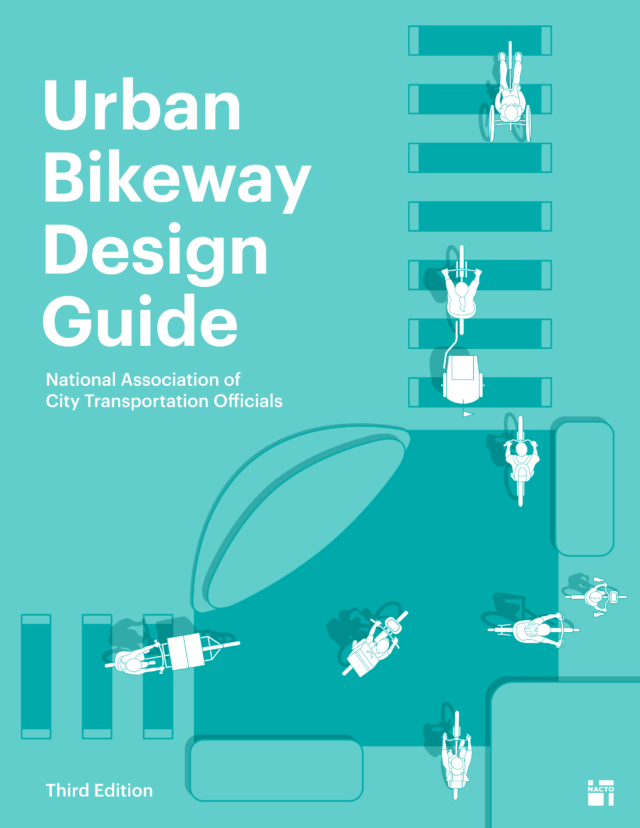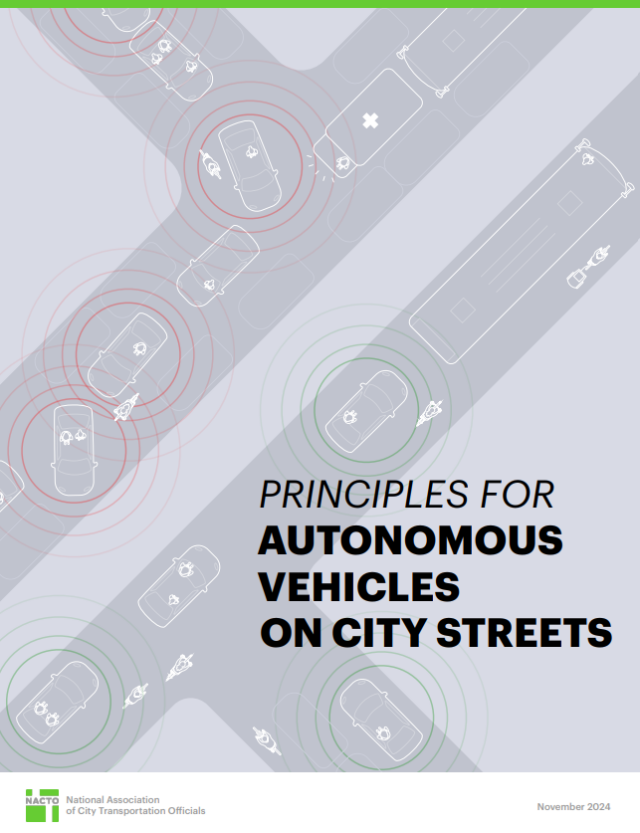As mobility service providers operating in the public realm (including Uber, Lyft, Bird, Lime, Waze, and other private mobility providers) capture increasing amounts of data, ensuring that data is appropriately collected and protected by cities and companies alike is an increasingly urgent concern. This data provides essential information that is at the heart of sound policy making. At the same time, both cities and private companies must take steps to safeguard data and ensure that individual privacy—a foundation of democratic society—is protected.
Managing Mobility Data, a joint product of the National Association of City Transportation Officials (NACTO) and the International Municipal Lawyers Association (IMLA), sets out principles and best practices for city agencies and private sector partners to share, protect, and manage data to meet transportation planning and regulatory goals in a secure and appropriate manner. While this document focuses mainly on the data generated by ride-hail and shared micromobility services, the data management principles can apply more broadly.
The document is based on four principles:
- Data is a Public Good: Cities require data from private vendors operating on city streets to ensure positive safety, equity, and mobility outcomes on streets and places in the public right-of-way.
- Data Should be Protected: Cities and private companies should treat geospatial mobility data as they treat personally identifiable information (PII).
- Data Should be Collected Purposefully: Cities should be clear about when, why, and what data is necessary for planning, analysis, oversight, and enforcement purposes.
- Data Should be Portable: Open data standards help cities and private companies to share data in universal formats, enabling cities to use data from multiple sources, and supporting innovation in both the public and private sectors.
While written by and for cities, NACTO and IMLA’s guidance is built on principles that should be adopted by both the public and private sectors.
Download Mobility Data Program (PDF)
This guidance is not intended to be legal advice and practitioners should always verify that existing laws and statutes in their jurisdiction do not require additional considerations.
